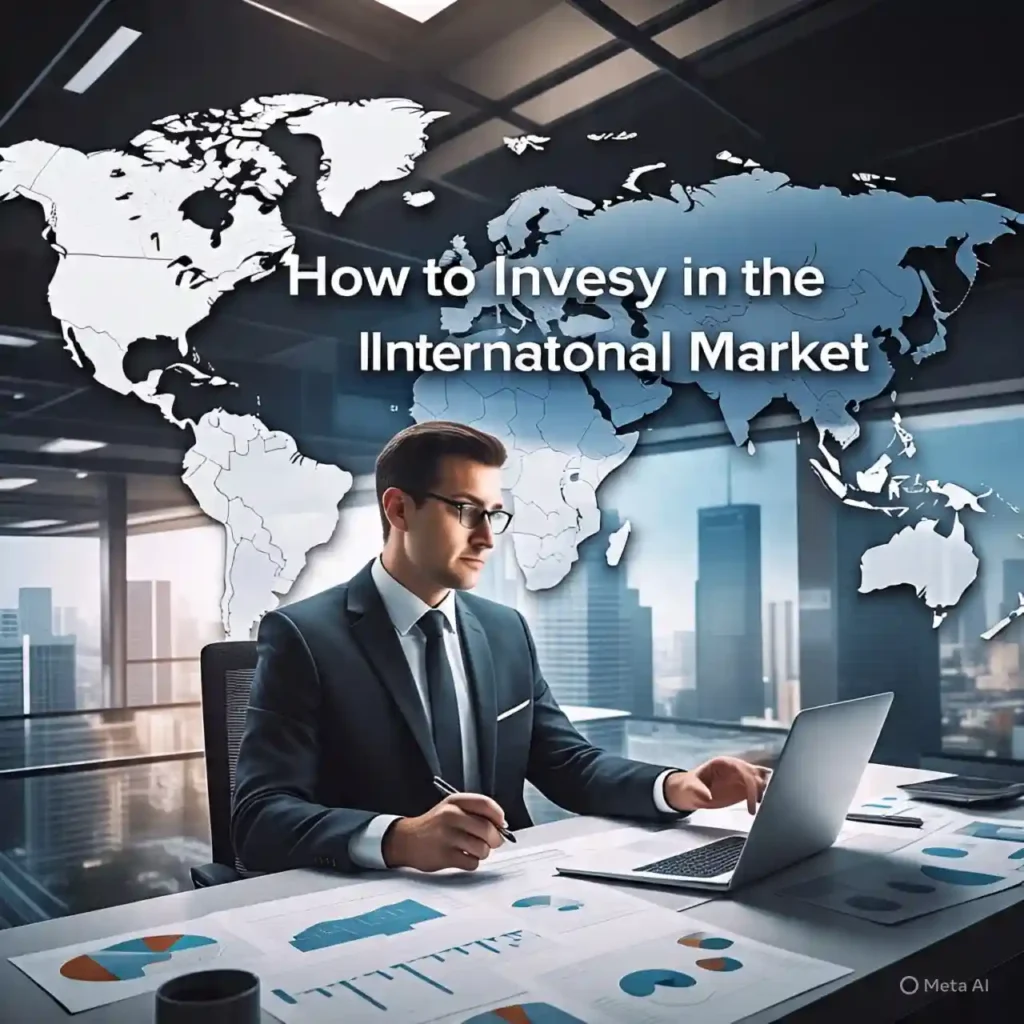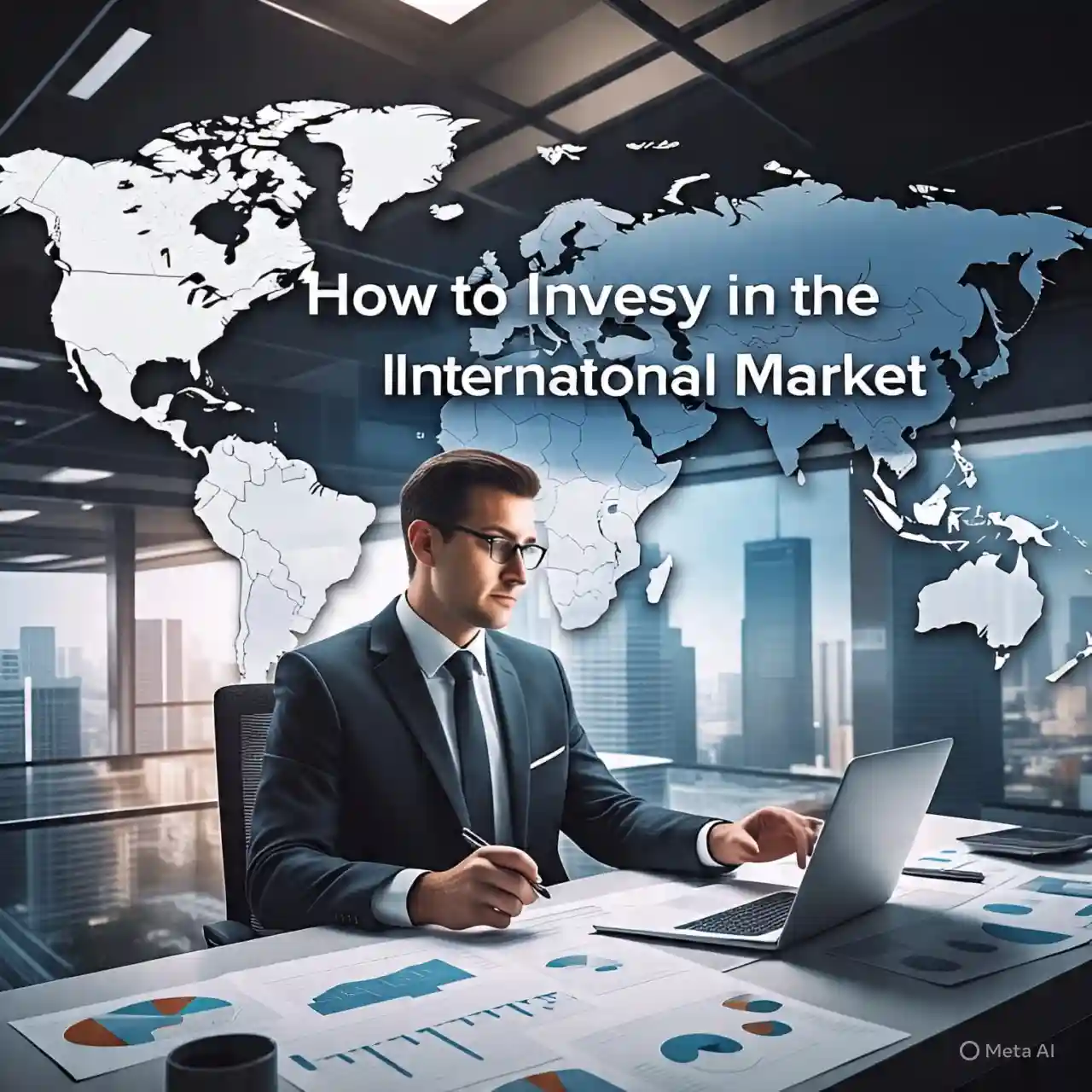
Investing in the international market offers a world of opportunities to diversify your portfolio and tap into global economic growth. In this article, we’ll explore the steps, benefits, and strategies for investing in foreign markets, ensuring you make informed decisions and maximize your returns.
Why Invest in the International Market?
1. Diversification
Spreading your investments across different countries reduces risk. If one market underperforms, others might compensate.
2. Access to High-Growth Economies
Emerging markets often offer higher growth potential compared to developed nations.
3. Currency Benefits
Fluctuations in foreign currencies can lead to additional gains when converting back to your home currency.
Steps to Start Investing in the International Market
1. Research and Educate Yourself
Before diving in, understand the dynamics of international markets. Study economic trends, political stability, and currency fluctuations in target regions.
2. Choose the Right Investment Vehicle
There are several ways to invest internationally:
- International Mutual Funds: Managed funds that invest in global markets.
- Exchange-Traded Funds (ETFs): Offer exposure to specific countries or regions.
- Direct Stock Investment: Buy shares of foreign companies listed on global exchanges.
- Global REITs: Invest in international real estate through Real Estate Investment Trusts.
3. Open an Account with a Broker
Choose a brokerage that provides access to international markets. Many online brokers offer global trading services.
4. Understand the Costs
Be aware of fees, including:
- Currency conversion fees.
- Foreign transaction fees.
- Tax implications in the foreign country.
5. Monitor Economic and Political Conditions
International investments are heavily influenced by global events, trade policies, and geopolitical tensions. Stay updated.
Popular Markets for International Investment in 2025
1. United States
The U.S. remains a leader in innovation and technology, with top companies like Apple, Amazon, and Tesla.
2. European Union
Countries in the EU offer stability, especially in sectors like finance, healthcare, and renewable energy.
3. Emerging Markets
Nations like India, Brazil, and Vietnam are experiencing rapid economic growth and industrialization.
4. Asia-Pacific
Japan, South Korea, and China continue to dominate in technology and manufacturing.
Strategies for Success in International Investing
1. Focus on Long-Term Growth
International markets can be volatile. A long-term perspective helps you ride out short-term fluctuations.
2. Diversify Across Regions
Avoid putting all your investments in one country or region. Spread your risk across multiple markets.
3. Use Currency Hedging
Protect your investments from currency fluctuations by using hedging tools like forex contracts.
4. Rebalance Your Portfolio Regularly
Periodically review and adjust your investments to maintain your desired level of risk and diversification.
Risks of International Investing
1. Currency Risk
Exchange rate changes can affect the value of your investments.
2. Political Instability
Changes in government policies, trade restrictions, or conflicts can impact markets.
3. Lack of Familiarity
Understanding foreign markets can be challenging for beginners.
4. Regulatory Differences
Laws and regulations vary by country, adding complexity to international investments.
How to Minimize Risks
1. Start Small
Begin with a small portion of your portfolio and gradually increase as you gain confidence.
2. Invest in Developed Markets First
Developed markets like the U.S. and Europe are typically less volatile than emerging markets.
3. Work with a Financial Advisor
If you’re unsure, consult a professional who specializes in international investing.
Tools and Platforms for International Investing
1. Interactive Brokers
Known for its wide access to global markets and low fees.
2. Fidelity International
Offers a variety of international mutual funds and ETFs.
3. eToro
Popular for its user-friendly interface and ability to trade international stocks.
4. TD Ameritrade
Provides a comprehensive platform for global trading.
Tax Implications of International Investing
Understand the tax treaties between your country and the one you’re investing in. You may be subject to withholding taxes on dividends or capital gains.
Conclusion
Investing in the international market can unlock significant growth opportunities and enhance portfolio diversification. With proper research, the right tools, and a clear strategy, you can navigate the complexities of global investing and achieve your financial goals.
FAQs
Do I need a special account to invest internationally?
Yes, many brokers require you to open an account that supports international trading.
Is international investing risky?
It carries risks like currency fluctuations and political instability, but these can be mitigated with proper planning.
How much money do I need to start investing internationally?
You can start with as little as $100 through ETFs or mutual funds.
What’s the best market for beginners?
The U.S. market is a good starting point due to its stability and accessibility.
Can I invest in international markets from any country?
Most countries allow international investments, but you may need a broker that operates globally.
